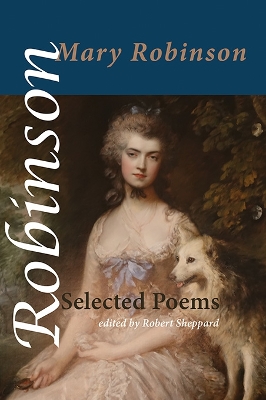Shearsman Classics
1 primary work
Book 33
The range of Robinson's poetic work is astonishing: from impassioned lyrics to 'Lyrical Tales', from sonnets to odes, from political poetry, reacting both for and against the French Revolution, to representations of various outsider figures (slaves, madmen and political exiles), from jocular parodies of contemporary 'Grub Street' writers to satires on the callousness of the rich, fashionable and famous. Whether speaking or writing in her own voice (serially bidding farewell to her lover Tarleton) or in the voice of others (dramatising the distress of Marie Antoinette, for instance) she was a poetic innovator, as capable as handling Popean couplets as the freshest blank verse.
Robert Sheppard selects the best of Mary Robinson's poetry for a general audience, while attempting to demonstrate the range of her work. He includes the complete text of Sappho and Phaon (1796), which was the first sonnet sequence to be published in English since the Renaissance. He relates her late work, particularly the forceful political blank verse epic 'The Progress of Liberty', to the emergence of the first generation of Romantics, upon whom she was a notable influence. He also briefly narrates her extraordinary life and introduces the work in his selection.
